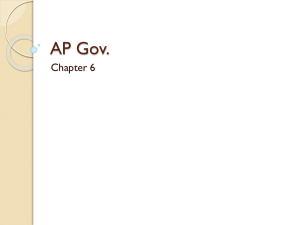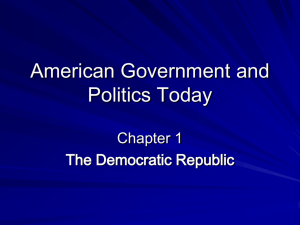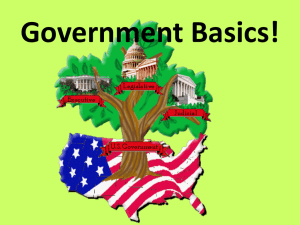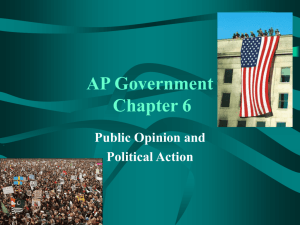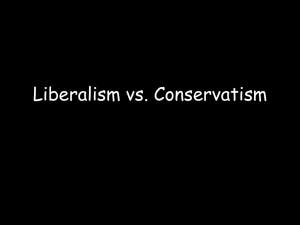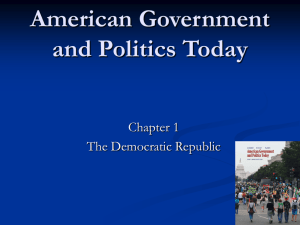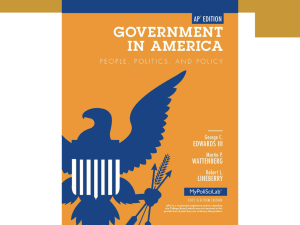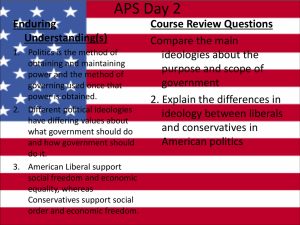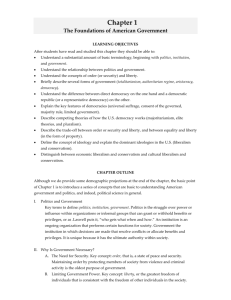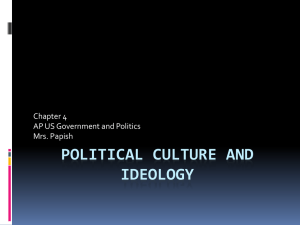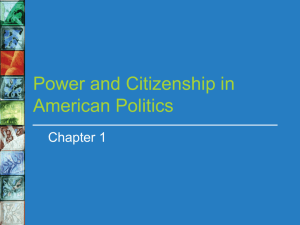American Government and Politics Today
advertisement
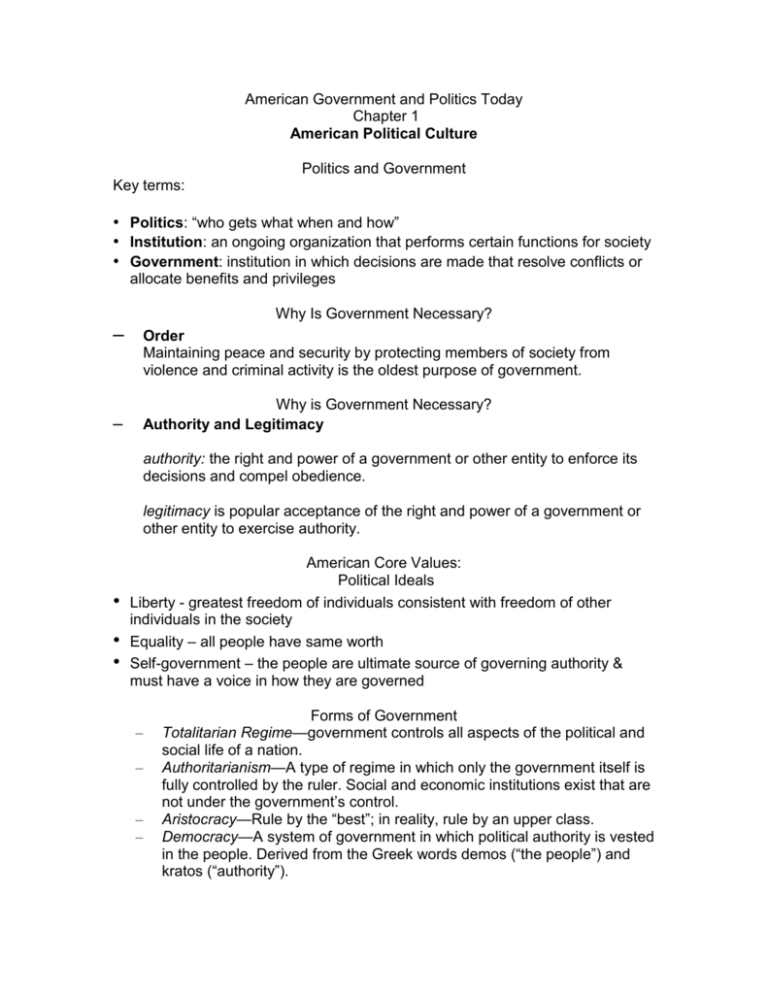
American Government and Politics Today Chapter 1 American Political Culture Politics and Government Key terms: • Politics: “who gets what when and how” • Institution: an ongoing organization that performs certain functions for society • Government: institution in which decisions are made that resolve conflicts or allocate benefits and privileges Why Is Government Necessary? – Order Maintaining peace and security by protecting members of society from violence and criminal activity is the oldest purpose of government. Why is Government Necessary? Authority and Legitimacy – authority: the right and power of a government or other entity to enforce its decisions and compel obedience. legitimacy is popular acceptance of the right and power of a government or other entity to exercise authority. • • • American Core Values: Political Ideals Liberty - greatest freedom of individuals consistent with freedom of other individuals in the society Equality – all people have same worth Self-government – the people are ultimate source of governing authority & must have a voice in how they are governed – – – – Forms of Government Totalitarian Regime—government controls all aspects of the political and social life of a nation. Authoritarianism—A type of regime in which only the government itself is fully controlled by the ruler. Social and economic institutions exist that are not under the government’s control. Aristocracy—Rule by the “best”; in reality, rule by an upper class. Democracy—A system of government in which political authority is vested in the people. Derived from the Greek words demos (“the people”) and kratos (“authority”). A Democratic Republic – Principles of Democratic Government • universal suffrage, or the right of all adults to vote for their representatives • majority rule, the greatest number of citizens in any political unit should select the officials and determine policies. – Constitutional Democracy. • limited government, states the powers of government should be limited, usually by institutional checks. Without such limits, democracy could destroy itself. – What Kind of Democracy Do We Have? Majoritarianism – rule by the people – Elite theory – rule by the few – Pluralism – rule by groups – Bureaucratic rule –rule by administrators Fundamental Rules of American Politics – – – Democracy Constitutionalism • Power is limited Capitalism Economic Equality Property Rights and Capitalism. – capitalism, an economic system characterized by the private ownership of wealth-creating assets and also by free markets and freedom of contract. • • – Patterns Unique to U.S. Politics Ideologies: Liberalism vs. Conservatism Conservatives tend to favor limited governmental involvement in the economic sector. Economic freedom is seen as a necessity for the good of the society. On social issues, conservatives advocate governmental involvement to preserve traditional values and lifestyles. – Liberals tend to favor governmental regulation of the economy to benefit individuals within the society. On social issues, liberals advocate a limited governmental role. Social freedom is seen as a necessity for the good of the society. Ideologies: The Traditional Political Spectrum socialism, a political ideology based on strong support for economic and social equality. Socialists traditionally envisioned a society in which major businesses were taken over by the government or by employee cooperatives. libertarianism, a political ideology based on skepticism or opposition toward almost all government activities. • • Classical Liberalism Liberal once meant limited government and no religion in politics. The term evolved into its modern American meaning along with the political evolution of the Democratic Party, which was once the party of limited government but has become the party of (relative) economic equality. – – A Four-Cornered Ideological Grid The Ideological Grid We can break down the electorate into cultural and economic liberals, cultural and economic conservatives, cultural liberals/economic conservatives (libertarians), and cultural conservatives/economic liberals. • Classifying the Voters. All four viewpoints have substantial support based on polling data. • Conservative Popularity. However, the term conservative, as a selfapplied label, is more popular than any other label except “moderate.”
